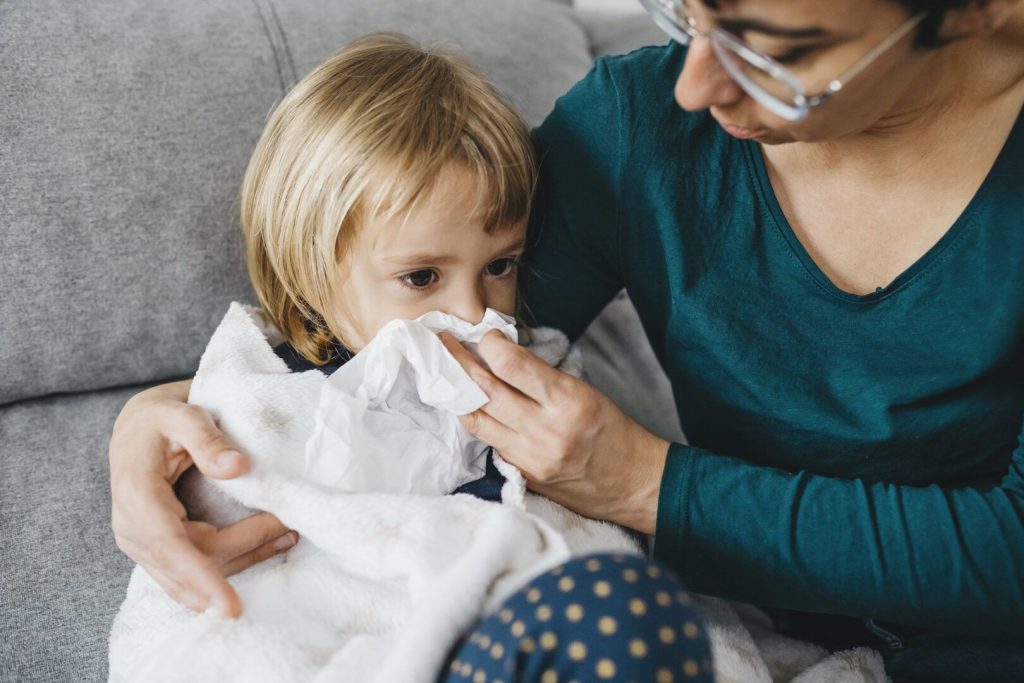Caring for a sick child may be challenging and draining for any parent. You can feel overpowered by their symptoms and select the best course of action. For example, determining if your child has to go to the doctor, childcare, or school can be challenging.
The best way is always to pay attention to your ill youngster. Once your child learns to speak, they will be better able to express their needs and feelings while ill.
If they are seriously sick, they might want to stay in bed, but in most cases, they might feel more at ease on the couch or in another cozy area. On the other hand, a baby might favor being rocked or carried in your arms. So the best medication for mildly unwell children is to keep them comfortable.
You can contact your family doctor if you believe your child is seriously ill. A doctor can offer guidance on how to care for your child or schedule an appointment for you to explore the matter further. Here are some suggestions for soothing your sick child:
Taking Care Of Cough And Cold
Children typically get six to eight colds a year in their first three to four years of life. After that, a cold might linger for three weeks on average. Your youngster may feel more at ease if the mucus is cleared out with a suction bulb until they are old enough to blow their noses.
Children who have a common cold complain of being tired and grumpy. Most colds and coughs in toddlers are viral and usually go away in eight to ten days. The last resort should be to start antibiotics.
When suffering from a cough or cold, be aware of these symptoms: a flushed face, rapid breathing while sleeping, flaring nostrils, and listlessness. Take your child immediately to the doctor if you see any of these symptoms.
Temperature Worries
Paying attention to a child’s behavior when they have a fever is critical. For example, the disease may not be as severe if they remain playful and active with a high fever.
It’s vital to pay attention to how a child is acting and what they’re eating/drinking because children’s fevers can vary in intensity.
In cases of mild fever, washing a sweaty body with a sponge is beneficial. It makes the child feel less clammy, and they can sleep better. In addition, recording the temperature every two hours may help identify the cause if there is a fever. The dosage of medications taken for fevers can also be changed depending on the intensity of the temperature.
When To Consult A Doctor
Minor symptoms can be treated at home or through home remedies. However, if you believe your child’s health is deteriorating, do not hesitate to contact a doctor. Unfortunately, children often avoid going to the doctor because they fear injections or other reasons. However, if he is in constant pain, make him understand the need to visit the doctor.
If he has a high temperature, is sweating, and is in pain, the infection has progressed beyond your control and necessitates medical attention. In addition, any specific symptoms, such as high fever, breathing problems, bleeding, constant crying, vomiting, or intense pain, need immediate attention from a doctor.
Doctors may recommend clinical trials in some cases. In that scenario, parents must complete all necessary documents, including a consent form. It could be a problem if you are unfamiliar with the terms and language used. As a result, use a specialized agency for informed consent form translation, and don’t jeopardize your child’s safety.
Be There
The best form of consolation is for your child, whether to talk, play, or hold their hand. It is priceless to let your child know that they are loved and shielded by you no matter what.
As a caregiver, you also need to look after yourself to have the strength and mental clarity necessary to care for your child. Find assistance from others and embrace it. For example, allow family members or close friends to watch your child while you run errands, take a shower, or pay some bills.
When your child is sick, he usually does not have the appetite to eat a proper meal. Your child will also struggle to swallow the food. Therefore, choose items that are simple to consume and digest. Furthermore, drinking plenty of water and other fluids is essential.
Blowing out the air and changing the blankets and bedsheets regularly will help keep germs and microbes at bay. Also, keep any strong-smelling air fresheners out of the way, and avoid wearing perfumes with a strong scent.













